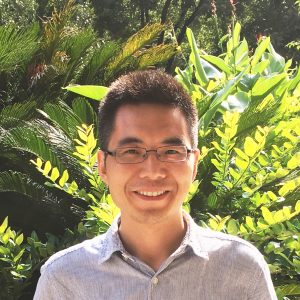Dr Weibing Yang
Group Leader Centre of Excellence for Plant and Microbial Science (CEPAMS)
Plant Growth Plasticity – how stem cells respond to environmental cues.
Weibing’ s research focuses on plant stem cell dynamics, aiming to understand the molecular cellular mechanisms underlying stem cell maintenance and differentiation.
Each year, about 2,000 new plant species are being discovered, adding to the total number of ~391,000 species of vascular plants on our planet. Each plant is unique, with distinct lifespan and morphology.
The diverse shapes of plants are generated through localised cell division and differential cell growth in meristematic tissues. Cell division and differentiation at the shoot apical meristem lead to the formation of all above-ground plant organs. How stem cells grow and divide, and how developmental programs and environmental cues are integrated into stem cell maintenance and differentiation remain largely unclear.
Using both Arabidopsis and rice as models, the Yang’s lab at CEPAMS investigate three interconnected questions:
- Molecular mechanisms of stem cell maintenance and differentiation
- Stem cell dynamics in response to environmental cues
- Cell wall re-modelling during cell division and growth
After obtaining a bachelor’s degree in Biology at Nanjing University, Weibing started his PhD study on crops in 2007 at the Shanghai Institute of Plant Physiology and Ecology, Chinese Academy of Sciences (CAS) and got a Ph.D. degree in Genetics in 2013.
From 2014 to 2020, Weibing had been working as a Postdoctoral Research Associate at the Sainsbury Laboratory Cambridge University, where he studied the molecular cellular mechanisms of stem cell dynamics.
In September 2020 Weibing joined CEPAMS and took a Group Leader position at the CAS Center for Excellence in Molecular Plant Science (CEMPS) / Institute of Plant Physiology and Ecology, CAS, Shanghai.
